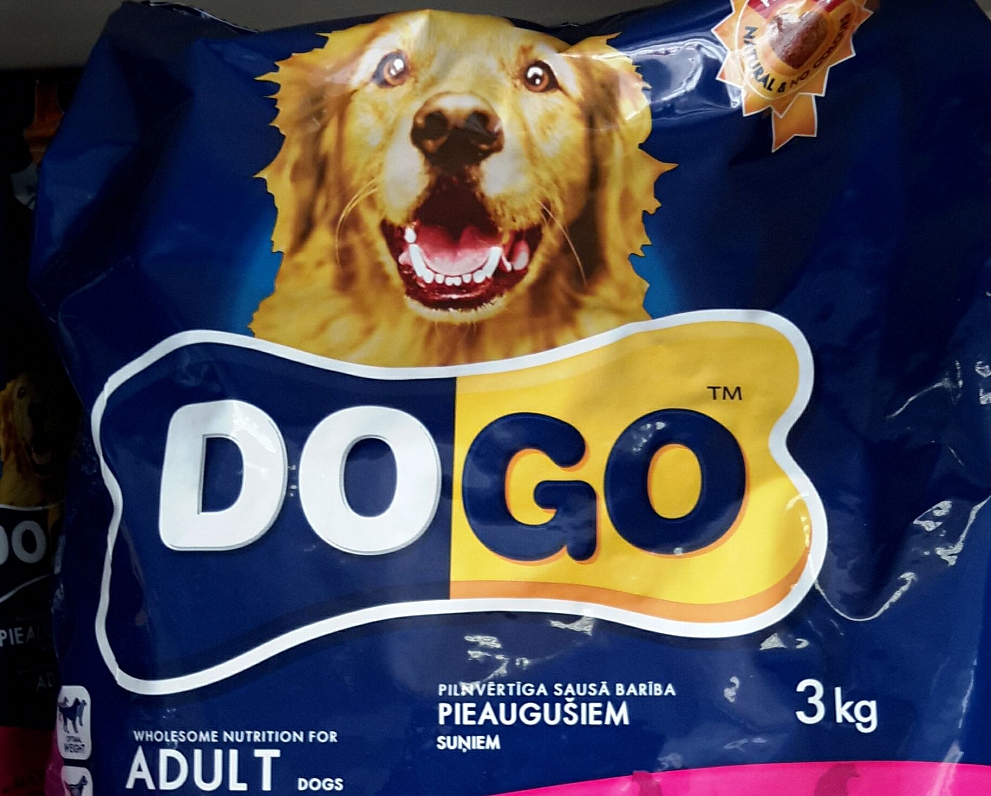Inspectors from the Food and Veterinary Service (PVD) confirmed to Latvian Radio on August 17 that traces of urea (also known as carbamide) had been found in poultry flavored DoGo brand dog food manufactured by the 'Tukuma straume' company.
The PVD said that the company is withdrawing 31 tons of contaminated feed (lot number 2870 with a use-by date of 29 June next year), and is advising owners not to feed "Dogo poultry" to their dogs.
Carbamide is a feed additive authorized for use in ruminants' feed but banned as toxic in dog and cat food.
PVD Veterinary Supervision Department Director Kristīne Lamberga told Latvian Radio tests are under way to see if other varieties of food produced by Tukuma straume are also tainted and asked what level of urea was permitted in dog food said: "The rate is zero."
Concerns over DoGo have been voiced since March 2015 after reports of dogs developing respiratory problems after eating it, including dogs of the border guard service.
However, in March this year it was confidently stated that concerns about DoGo were over after a decline in the number of dogs suffering from 'megaesophagus'.
In the first six months of 2016, 80 cases on the disease were officially registered with vets, but that number dropped off markedly in the same period this year - not least because many dog owners switched to other brands from DoGo, which had been among the cheapest and most popular brands of dog food in Latvia.
Agriculture Minister Janis Duklavs took to the airwaves to defend DoGo in June 2016, confidently telling LTV he fed it to his own dog and had observed no ill effects.
"We have no reason to believe this feed has any ill effects upon dogs," he said, citing tests that he said had cost a lot of money to taxpayers.
"I can't say what has happened with every single dog. The reasons [for the high incidence of megaesophagus] could be very varied," he said, adding that the manufacturers had been very cooperative and hinting that some sort of "campaign" might be behind the furore over DoGo feed.
"Until we have laboratory tests showing this feed is harmful, I will not say it is harmful... I gave my dog a bag of DoGo and I didn't notice any ill effects," he said.
The manufacturer of the feed had threatened court action against veterinarians and researchers who voiced suspicions that its product was unsafe and demanded almost half a million euros in compensation.
Prominent among those voicing concerns was veterinarian Ilze Matīse-Vanhoutana, whose research suggested the prevalence of megaesophagus was worryingly high in Latvia and that contaminated feed was a likely cause.
However, the Agriculture Ministry has been careful not to lend any weight to the suspicions and even went to the unusual length of publishing a brief academic paper on its website that concluded not enough evidence exists to establish a definite link between DoGo and canine illness.
In May 2016 it said tests had shown all substances in DoGo foods to be within permitted norms.





























